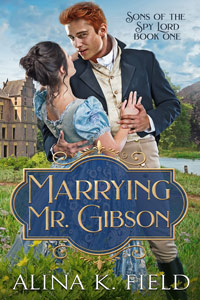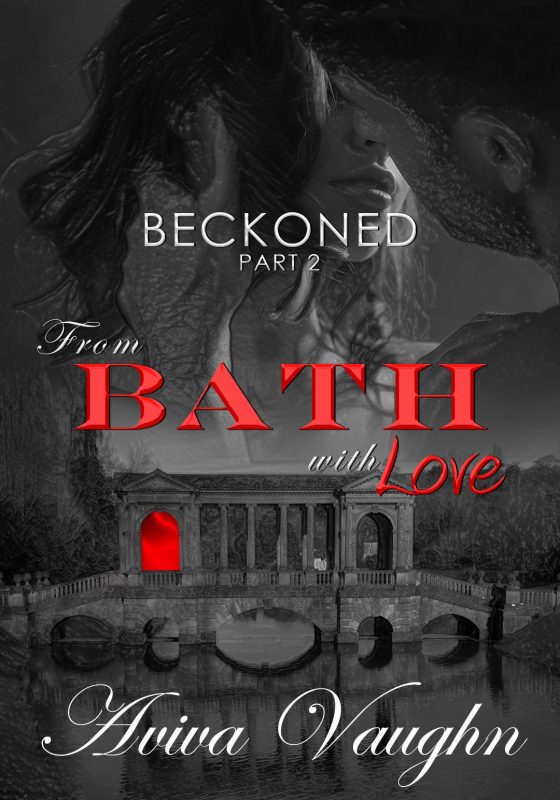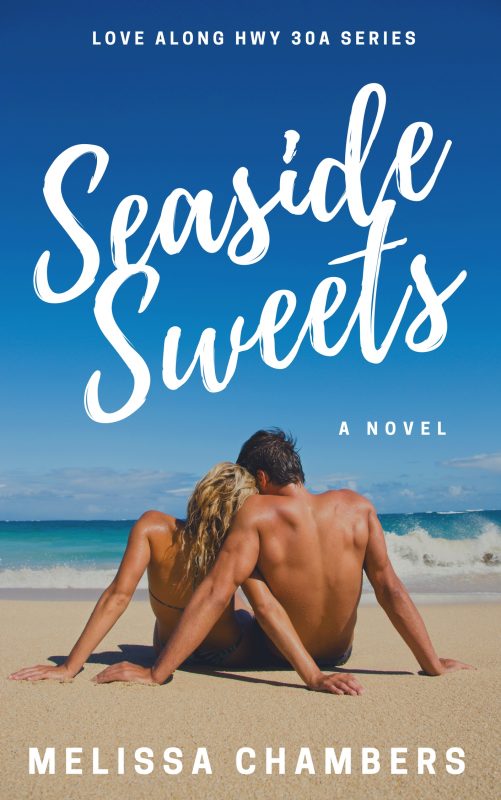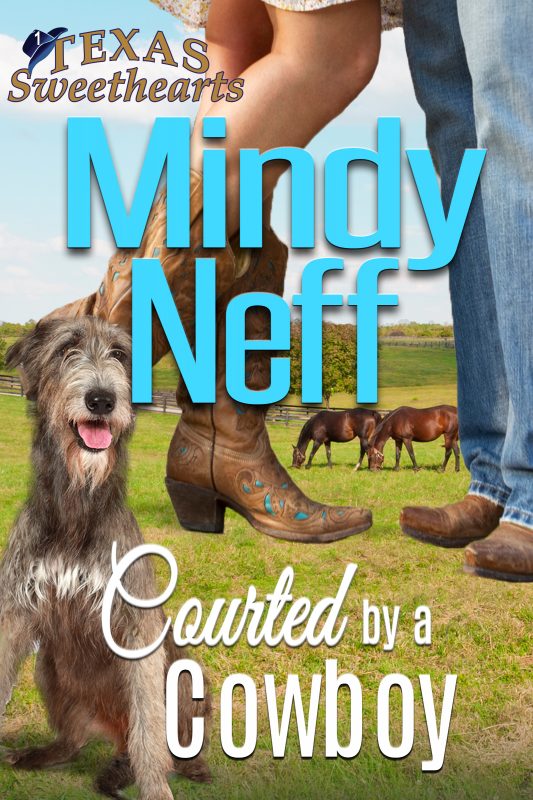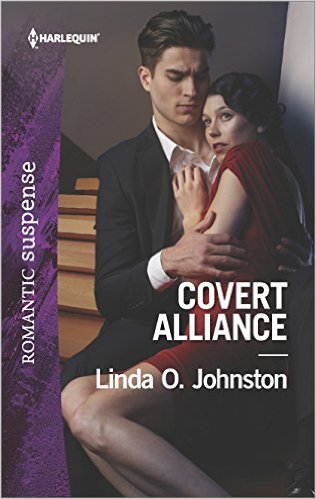Notes from Val’s Desk
August 4, 2009 by A Slice of Orange in category Archives tagged as Motivational, Notes From Val's Desk, Volunteering- This blog is writing related only in the sense that I’m writing it. And, (to those who know me) sometimes I like to begin with the definition of my “topic†word, which in this case is quite impressive.
So here it is:
vol·un·teer (noun)
· a person who chooses freely to do or offer to do something
· a person who chooses freely to enter into any transaction with no promise of compensation
· a person who serves as volunteer, usually without compensation
· a person who freely chooses to offer or give without being asked or obliged
I am by nature a very curious person. When I was growing up, my mother (who was handicapped and never wanted to be noticed) always made me sit quietly and watch. Watching is definitely not my idea of having fun. As a result, I became a first-class observer and an excellent listener. It took a few years to take that first step, but I finally got my butt off the bench and have been running ever since. Today I am a dyed-in-the-wool VOLUNTEER and darn proud of it.
It’s so much better to be involved than sit on the sidelines. To me, it’s like looking at sparkling Christmas lights through a window and wanting to touch. Today, and with no regrets, I think about the adventures I’ve had, the places I’ve been, the interesting people I never would have met and the wonderful friendships I’ve made. I’ve learned and developed new skills from artfully arranging goodies on a tray to getting up and speaking to a room full of people. Volunteering doesn’t have to be vocal; what you do can be done “behind the scenes†as well. But most important is the feeling of satisfaction knowing that your efforts may have contributed to something or someone in a positive way.
Maybe you say you don’t have the time or worse, you’re all volunteered-out. I took a little hiatus from volunteering just once. It didn’t take long for me to realize that a part of my life was missing—that connection with people and what was happening out there in the world. I couldn’t wait to get back in the game and I did.
I have to be honest. More than once I should have said “no†instead of “yes†and then felt burdened with a little too much to do. So do your homework. Be realistic about how much time you are willing to devote so you won’t “burn out.†What are you interested in? What will give you the greatest satisfaction? What would make your life a little more interesting? Find that event or group you’d like to be a part of—they may need you as much as you need them.
Now, get out there and volunteer for something!!!
0 0 Read moreChapter Meeting – August 8, 2009
August 3, 2009 by A Slice of Orange in category Archives tagged as Chapter Meeting InformationGeneral Meetings are held the second Saturday of the month at the Brea Community Center, 695 E. Madison Way, Brea, CA 92821.
For a map and directions, click here.
Meeting fees are $10 for Members and $20 for Non-Members.
Meeting Schedule for August 8, 2009:
9:30 am: Doors Open / Ask an Author—Volunteer Ask an Author/s for August: Karen Kay
10:30 – 10:45 am: Announcements
Morning Workshop: ALYSON NOEL New York Times, USA Today & Publisher’s Weekly bestselling, award-winning author of the Immortals series, including Evermore and Blue Moon, will talk about Drama, Angst and Heartache: Writing the Young Adult Novel
11:50 – 1:00: Lunch Break (Lunch Orders available)
12:45 – 1:00: New Member Orientation
12:30 – 1:00: Book signings (check www.occrwa.org for schedule)
1:00 – 1:30 pm: General Meeting and Announcements
Afternoon Speaker: KARL IGLESIAS, a screenwriter, script doctor and consultant, best-selling author of Writing for Emotional Impact: Advanced Dramatic Techniques to Attract, Engage, and Fascinate the Reader From Beginning to End and The 101 Habits of Highly Successful Screenwriters. Karl is going to discuss Writing for Emotional Impact
3:00 pm: Meeting Adjourns
Attention: OCC Members Attending the Meeting–Monthly Critique Drawings!
Volunteer Critique Author for August: Jennifer Haymore
Important 2009 Dates to Remember:
August 10, 2009 – September 5, 2009—OCC Online Class: Using Body Language and Vocal Gestures to Create More Believable Characters with Bill Edmunds. For information click HERE
Saturday, August 22, 2009: Character and Conflict; Point of View and Dialogue
Multi-published authors Deb Mullins and Charlotte Lobb (aka Charlotte Maclay), will help you stretch your writing abilities and move you on the road to publishing. These are the basics of writing a good book, drawing in your readers (and editors) and pumping up the emotion. Building these basic skills – and maybe latching onto some advanced techniques – will up your chances of making THE SALE.
Join them from 9:00 a.m. to 3:30 for a full day of learning and growth in your craft at the Brea Community Center (Art Studio). Don’t miss this special presentation from two of OCC’s very talented and successful authors! For more info Click Here
For current Online Class Schedule and registration information, please visit http://www.occrwa.org/onlineclasses.html.
For more chapter meeting information visit OCC’s website at http://occrwa.org/meetings.htm
0 0 Read moreA Fantasy Life
July 27, 2009 by A Slice of Orange in category A Fantasy Life by Janet Cornelow tagged as Janet Cornelow, Janet QuinnBy Janet Quinn Cornelow
I have spent most of the last six weeks on the couch watching reruns because I pinched a nerve in my back and couldn’t do much else.
It amazes me how many writers there are in different series. They all seem to write mysteries and make a great deal of money with their first books. Maybe that is where people get the idea if they write a book they are going to make enough money to quit their day jobs.
In Bones, Temperance Brenner’s publisher gave her a sports car and complete strangers ask her about her books. In NCIS, McGee wrote a book and now has money and can get into places that only let in the rich and famous. Both of them used their coworkers as characters in their books.
Then there is Castle. He’s on a permanent ride-along with the police. He has his own bulletproof vest that says Writer on it. Like the police would let a civilian into crime scenes or when they are about to arrest someone at gun point.
Being a writer on television seems to be better than being a writer in real life. A fantasy we would all like to be part of.
Unfortunately, I haven’t done much else than watch television. I have two chapters to finish Sam’s story. I did edits and read the galley on my next book. Hopefully the next month will be better as my back gets better.
2 0 Read moreAugust Online Class: Using Body Launguage and Vocal Gestures to Create More Believable Characters w/ Bill Edmunds
July 26, 2009 by A Slice of Orange in category Archives********** permission to forward **********
Hi everyone! Check out the exciting online classes offered by the
Orange County Chapter of RWA!
â€Using Body Language and
Vocal Gestures to Create More Believable Charactersâ€
with Bill Edmunds
August 10, 2009 – September 5, 2009
Enrollment Information at http://www.occrwa.org/onlineclassAug09.html
COST: $20 for OCC members, $30 for non-members
Enrollment deadline: August 9, 2009
If you have specific questions, email occrwaonlineclass@yahoo.com
ABOUT THE CLASS:
“Show – Don’t tell†–
If you have been in the writing business for any time at all you have likely come upon this phrase. Editors love to use it. But what does it mean? Answering that question will be the focus of this course.
Here’s an example of two exercises we will work on together:
“What Jim said really angered Mary.†How might you convey this scene using only a description of Mary’s body language.
Which one of these two actions would be the least provocative?
“She flipped her hair back off of her shoulder with the back of her hand†or “She swung her head, causing her hair to fall back off of her shoulder.â€
You might say that we will learn how to better stir the blood of our readers by creating more believable romance characters through descriptions of body language and vocal gestures. What are vocal gestures? You can find one of them in the sentences above that signals “a lack of commitment.†Did you find it?
ABOUT THE INSTRUCTOR:
William I. “Bill†Edmunds, a freelance writer, teacher and frequent speaker, is a retired Police Lieutenant. Starting prior to his retirement from full-time police work, Bill serves as an instructor in advanced interview and interrogation techniques and statement analysis for Behavior Analysis Training Institute (B.A.T.I.) headquartered in Santa Rosa , CA . He has personally participated in the training of more than 11,000 law enforcement professionals, teaching on how to detect deception and get to the truth.
He has served on the staff of the Mount Hermon Writer’s conferences for a number of years and has taught on, “How to Create More Believable Fiction Characters,†at best selling author, Lauraine Snelling’s Advanced Fiction Writers courses.
He has two books currently in print. “All Roads Lead to Zion ,†published by Paracletus Press, (www.RoadstoZion.com) and “Mary’s Lavish Gift,†published by Every Good Gift (www.Everygoodgift.com). He and his wife, Joan, reside, romantically, together in Clearlake , CA .
Enrollment Information at http://www.occrwa.org/onlineclassAug09.html
COST: $20 for OCC members, $30 for non-members
Enrollment deadline: August 9, 2009
Coming in September –
“Plot That Novel YOUR Way”
with Sue Viders and Becky Martinez
It provides explanations of ways to plot and goes into detail on how authors who write by the seat of their pants can use those ways to make their own plotting—or lack of it—easier.
http://www.occrwa.org/onlineclasses.html. Check out our full 2009 list of workshops.
Want to be notified personally two weeks before each class? Be sure
you’re signed up for our Online Class Notices Yahoo Group! Sign up at
the bottom of http://www.occrwa.org/onlineclasses.html or send a blank
email to OCCRWAOnlineClassNotices-subscribe@yahoogroups.com
********** permission to forward **********
0 0 Read moreMy Body of Content, My Choice
July 24, 2009 by A Slice of Orange in category Archives tagged as Association of American Publishers, Authors, Authors Guild, Google SettlementMany of you have heard of the suit the Association of American Publishers and the Author’s Guild (a class action suit) brought against Google in response to Google’s plans to digitize copyrighted content without the copyright holder’s permission. Google additionally gives a complete digital copy to the libraries from whom they were getting the content, to do with what they wanted.
While Google said they were only planning on using “snippets” (not a legally defined quantity, so it’s whatever they decide) to aid in search, and felt that the open wording of Fair Use would cover them in making entire copies of protected material, Publishers and the Author’s Guild did not agree. Both Publishers and the Author’s Guild felt that anyone making a full copy of a copyrighted work should ask the copyright holder’s permission.
After two years of negotiation, a Settlement was reached, which you also may also have heard about. The Settlement has been delayed and there will be fairness hearings on October 7th. Now it seems that everyone and their kitchen sink is weighing in with issues, and the settlement may not go through. That would not be good news, in my opinion. While the settlement is by no means perfect, it’s a start. Without it, content creators and publishers are left very vulnerable on the digital frontier.
And it is literally a frontier. To continue the metaphor, settlers are going out in their covered wagons, putting stakes in the ground, claiming the open land. It’s not an easy life, and initially, fortune seems to favor lawlessness. But once enough people move out there, laws become increasingly important to be able to survive and thrive as a society. You’ve seen the movies–it’s a challenging process, but respecting property and creating and abiding by a rule of law is a key next step. That’s what needs to happen on the digital frontier, and the settlement is a great first step.
For those that don’t see the problem of making a full digital copy, here is my metaphor: If I want to show (or not show) parts of my body to the public–maybe I wear a short skirt, or maybe I wear a scarf, or maybe I go topless in a particular place–that’s my choice. But to those that want to take a full body scan of all of me–yes, EVEN if you promise you’ll only show little bits, even if it’s for medical reasons–you have to ask me. My body of content, my choice.
John Sargent, an AAP member, was featured in an interview in the June 8th issue of Publishers Weekly (Sargent Makes the Case). Additionally, Tom Allen, the new CEO of the AAP had a recent op-ed in Publisher’s Weekly.
In recent days some strong arguments in favor of the Settlement have also appeared in print from individuals who are not party to the Settlement. Reuter’s financial columnist Mark Gimien has a recent piece “In Defense of Google Books” which describes the benefits and goes on to debunk some of the myths that have been circulating with great clarity and is well worth reading.
Another is a letter to the Financial Time“Booklovers should cheer Google’s plan” from David Balto a Senior Fellow at the Center for American Progress and former Policy Director of the Federal Trade Commission. These should offer a better understanding of what’s at stake.
I also wanted to include some broad information about the Settlement and why it seems a very positive step. Take a moment to review the points. Romance may not be on the front lines of what is at issue, but the principal affects us all, and we need to stand together:
• Provide readers and researchers with access to millions of out-of-print books, many of which are currently difficult or impossible for readers to obtain, in a searchable online database.
• Turn every public library building in the U.S. into a world-class research facility by providing free access to the online portal of out-of-print books.
• Permit any college or university in the U.S. to subscribe to the same rich database of out-of-print books.
• Give new commercial life to millions of books, while protecting the economic rights of authors and publishers.
If not approved by the court, the litigation between AAP, the Authors Guild and Google may continue for years, and with a great risk that authors and publishers will have no effective means to stop the widespread use of copyrighted material that is likely to follow.
I. Benefits for Readers and Researchers
The settlement unlocks a vast archive of out-of-print books, providing readers and researchers with far greater access to books than ever before.
Access at your public library. The settlement turns every library into a world-class research facility, by offering every public library building in the U.S.–all 16,500 of them–a free online portal to millions of out-of-print books.
Access at colleges and universities. The settlement offers students and teachers in even the smallest and most remote American colleges and universities access, through institutional subscriptions, to millions of books previously available only in the largest academic libraries in the country. Faculty members and students will be able to tap into this library from their offices and dorm rooms.
Access at your computer. Anyone online in the U.S. will have free “preview†access to hundreds of millions of pages of text (up to 20% of each book). Review hundreds of accounts of the Battle of Vicksburg, or of the beginnings of the Industrial Revolution, or of the sources and interpretation of Moby Dick, at no charge. Find one book particularly compelling? Buy access to the entire book. Access to public domain books is free, of course, and authors controlling the rights to their books can choose to give away access for free.
II. Benefits for Authors and Publishers
Out of print books have value, but that value is lost to the market and to authors and publishers. The settlement breathes new commercial life into out-of-print books, while leaving the existing market for in-print books alone.
Find new readers. Out-of-print books need no longer be relegated to the used book market. The settlement will make out-of-print works available to hundreds of millions of readers, through ad-supported previews, sales of online editions, and institutional subscriptions. If a book catches on, there will be sales data to prove it, which may create an opportunity to bring the work back into print in traditional form.
In-print books are unaffected. A cardinal rule in the negotiations was not to disturb the market for in-print books. Titles that are in print won’t be made available through any of the means described in the settlement, unless the author and publisher expressly want them to be.
A Book Rights Registry to protect rightsholders. A non-profit registry governed by authors and publishers will oversee the settlement on their behalf, to help make sure rightsholders receive the benefits they’re entitled to. (Sign up for the Registry by filing a claim at googlebooksettlement.com.)
A fair share of revenues. 63% of gross revenues go to authors and publishers; Google keeps 37%. Funds will be paid to the Book Rights Registry, which will pay authors and publishers after retaining a modest administrative fee. If rights have reverted to authors, they will receive 100% of the rightsholder revenue.
Unprecedented control for authors and publishers. Authors and publishers will manage their rights through an account management page at the Book Rights Registry. Authors who control rights to their works, for example, may choose to allow Google to display ad-supported previews of books, sell online editions (authors may set the price or let an algorithm do it for them), and license the work to colleges and universities, or they may choose to block all display uses. Authors can change their minds, at any time, with reasonable notice. What if a book comes back into traditional print? The rightsholder can then simply turn off all display uses, if it chooses, and permit the publisher to sell the work through standard retail outlets.
Authors’ estates, too. Authors’ estates exercise the same rights as authors.
At least $45 million in payments for unauthorized scanning. Any of Google’s digitizing of in-copyright books done before May 5, 2009 is considered unauthorized under the settlement. Google will pay to obtain a release of these copyright infringement claims. Under the settlement, Google will pay at least $60 and as much as $300 to rightsholders for each book that it scanned without authority, for a total payment to rightsholders of at least $45 million.
III. Benefits for All
Viable Market. The settlement creates a viable economic structure for a new digital market of on-line access to out-of-print and lesser known works.
Encourages competition. The settlement encourages competition by making non-exclusive all the rights granted to Google in the Agreement and by empowering the Book Rights Registry to negotiate arrangements with Google’s competitors.
Well, if you’ve gotten this far, congratulations and thank you! I want to continue to inform and clarify this issue for the community. We need educated advocates to support this important step.
Affiliate Links
A Slice of Orange is an affiliate with some of the booksellers listed on this website, including Barnes & Nobel, Books A Million, iBooks, Kobo, and Smashwords. This means A Slice of Orange may earn a small advertising fee from sales made through the links used on this website. There are reminders of these affiliate links on the pages for individual books.
Search A Slice of Orange
Find a Column
Archives
Featured Books
MARRYING MR. GIBSON
She won't be forced into marriage to a nobleman's by-blow. He won't be trapped into marriage by a father he's never known.
More info →
BECKONED, PART 2: FROM BATH WITH LOVE
Can fire and ice both survive?
More info →SEASIDE SWEETS
After her ex runs up her credit card, clears her bank account, and gets her fired, Seanna escapes to Seaside, Florida where the men are hot as the Gulf Coast sun…one in particular.
More info →COVERT ALLIANCE
Passion flares between a mysterious woman and a covert investigator who knows her secret…
More info →Newsletter
Contributing Authors
Search A Slice of Orange
Find a Column
Archives
Authors in the Bookstore
- A. E. Decker
- A. J. Scudiere
- A.J. Sidransky
- A.M. Roark
- Abby Collette
- Alanna Lucus
- Albert Marrin
- Alice Duncan
- Alina K. Field
- Alison Green Myers
- Andi Lawrencovna
- Andrew C Raiford
- Angela Pryce
- Aviva Vaughn
- Barbara Ankrum
- Bethlehem Writers Group, LLC
- Carol L. Wright
- Celeste Barclay
- Christina Alexandra
- Christopher D. Ochs
- Claire Davon
- Claire Naden
- Courtnee Turner Hoyle
- Courtney Annicchiarico
- D. Lieber
- Daniel V. Meier Jr.
- Debra Dixon
- Debra H. Goldstein
- Debra Holland
- Dee Ann Palmer
- Denise M. Colby
- Diane Benefiel
- Diane Sismour
- Dianna Sinovic
- DT Krippene
- E.B. Dawson
- Emilie Dallaire
- Emily Brightwell
- Emily PW Murphy
- Fae Rowen
- Faith L. Justice
- Frances Amati
- Geralyn Corcillo
- Glynnis Campbell
- Greg Jolley
- H. O. Charles
- Jaclyn Roché
- Jacqueline Diamond
- Janet Lynn and Will Zeilinger
- Jaya Mehta
- Jeannine Atkins
- Jeff Baird
- Jenna Barwin
- Jenne Kern
- Jennifer D. Bokal
- Jennifer Lyon
- Jerome W. McFadden
- Jill Piscitello
- Jina Bacarr
- Jo A. Hiestand
- Jodi Bogert
- Jolina Petersheim
- Jonathan Maberry
- Joy Allyson
- Judy Duarte
- Justin Murphy
- Justine Davis
- Kat Martin
- Kidd Wadsworth
- Kitty Bucholtz
- Kristy Tate
- Larry Deibert
- Larry Hamilton
- Laura Drake
- Laurie Stevens
- Leslie Knowles
- Li-Ying Lundquist
- Linda Carroll-Bradd
- Linda Lappin
- Linda McLaughlin
- Linda O. Johnston
- Lisa Preston
- Lolo Paige
- Loran Holt
- Lynette M. Burrows
- Lyssa Kay Adams
- Madeline Ash
- Margarita Engle
- Marguerite Quantaine
- Marianne H. Donley
- Mary Castillo
- Maureen Klovers
- Megan Haskell
- Melanie Waterbury
- Melisa Rivero
- Melissa Chambers
- Melodie Winawer
- Meriam Wilhelm
- Mikel J. Wilson
- Mindy Neff
- Monica McCabe
- Nancy Brashear
- Neetu Malik
- Nikki Prince
- Once Upon Anthologies
- Paula Gail Benson
- Penny Reid
- Peter J Barbour
- Priscilla Oliveras
- R. H. Kohno
- Rachel Hailey
- Ralph Hieb
- Ramcy Diek
- Ransom Stephens
- Rebecca Forster
- Renae Wrich
- Roxy Matthews
- Ryder Hunte Clancy
- Sally Paradysz
- Sheila Colón-Bagley
- Simone de Muñoz
- Sophie Barnes
- Susan Kaye Quinn
- Susan Lynn Meyer
- Susan Squires
- T. D. Fox
- Tara C. Allred
- Tara Lain
- Tari Lynn Jewett
- Terri Osburn
- Tracy Reed
- Vera Jane Cook
- Vicki Crum
- Writing Something Romantic
Affiliate Links
A Slice of Orange is an affiliate with some of the booksellers listed on this website, including Barnes & Nobel, Books A Million, iBooks, Kobo, and Smashwords. This means A Slice of Orange may earn a small advertising fee from sales made through the links used on this website. There are reminders of these affiliate links on the pages for individual books.


